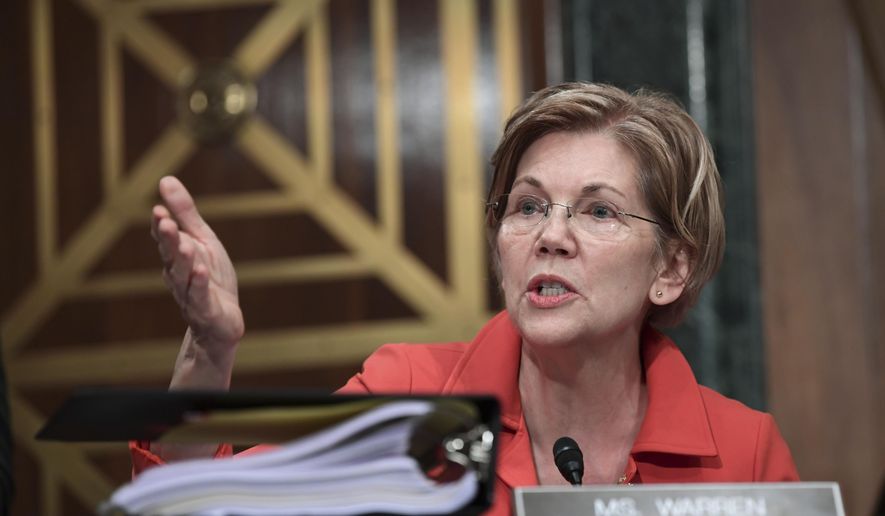Sen. Elizabeth Warren shared her “Me Too” story on national television this past Sunday, describing a harrowing account of sexual harassment she experienced as a young law professor.
But her recollection of the incident is “inconsistent” with the way she previously told the story, reported the Boston Globe.
Ms. Warren told the same story two decades ago at the memorial service of the senior University of Houston faculty member that she accused of chasing her around a desk.
At the 1997 gathering, she spoke fondly of law professor Eugene Smith and said she had been laughing as he chased her, according to a memoir written by one of her colleagues.
Ms. Warren “described Gene’s chasing her around the desk in uncontrolled lust while she laughed, equally uncontrolled, as she avoided his crab-like grasp,” wrote John Mixon in “Autobiography of a Law School,” a memoir chronicling the school’s history.
On NBC’s “Meet the Press” on Sunday, Ms. Warren cast the story in a different light.
“And one day he asked me if I would stop by his office, which I didn’t think much about,” she said of Smith. “And I did. And he slammed the door and lunged for me. It was like a bad cartoon. He’s chasing me around the desk, trying to get his hands on me. And I kept saying, ’You don’t want to do this. You don’t want to do this. I have little children at home. Please don’t do this.’ And trying to talk calmly. And at the same time, what was flickering through my brain is, ’If he gets hold of me, I’m going to punch him right in the face.’”
When she returned to her office, Ms. Warren said she “just sat and shook.”
“And thought, ’What had I done to bring this on?’” she said. “And I told my best friend about it. Never said a word to anyone else. But for a long time, I wore a lot of brown.”
At the funeral, Mr. Mixon said Ms. Warren told him the story as if it were a fond recollection of their late colleague. In the memoir, he describes Ms. Warren and Smith as having become “fast friends” early on in her tenure at the University of Houston.
But in retrospect, he said he “may have been wrong in saying she was laughing” during the incident, pointing out that he wrote about the story 15 years after he heard it.
“I do have a little discomfort about describing it lightly in my book,” Mr. Mixon told the Globe. “Probably more lightly than it should’ve been treated, certainly, in today’s retrospective world.”
In a brief interview with the Globe, Ms. Warren said she told the story at Smith’s funeral as a statement about his diminished authority.
“It was 20 years later, and he didn’t have power over me anymore,” she said.
Asked whether she recalled describing Smith fondly, Ms. Warren did not answer the question directly.
“I made it clear that I was just fine,” she said.
Contrary to what Mr. Mixon wrote in the memoir, the Massachusetts Democrat said she was not close to Smith.
Mr. Mixon, 84, said Smith had a reputation for being a good ol’ boy, but people often didn’t take his advances seriously because he suffered from polio and was in a poor physical condition. As his physical health deteriorated toward the end of his life, Smith could only walk with difficulty.
This is not the first time the veracity of Ms. Warren’s claims have been called into question.
During the 2012 Massachusetts Senate race, it was revealed that Ms. Warren had claimed for more than a decade in law school directories that she was of Native American ancestry.
In a 1993 article in the Harvard Women’s Law Journal, two years before she joined the Harvard Law School faculty as a tenured professor, Ms. Warren described herself as a “woman of color.” The prestigious law school held up Ms. Warren’s “Native American background” as an example of its diverse hiring pool during her tenure there.
When asked for evidence of her tribal roots, Ms. Warren cited family “lore” and her “high cheekbones.” She is not a member of the Cherokee Nation.
• Bradford Richardson can be reached at brichardson@washingtontimes.com.




Please read our comment policy before commenting.